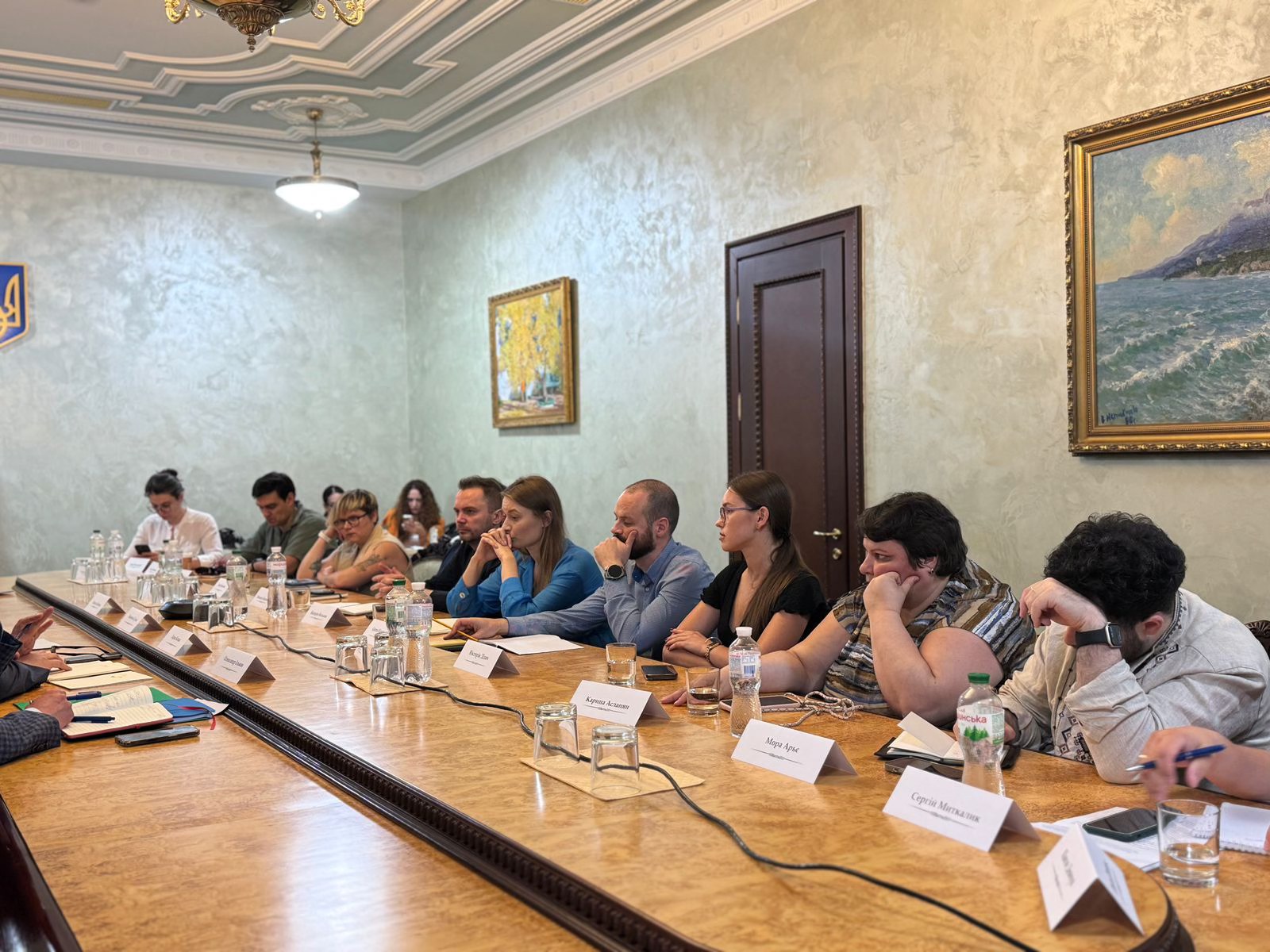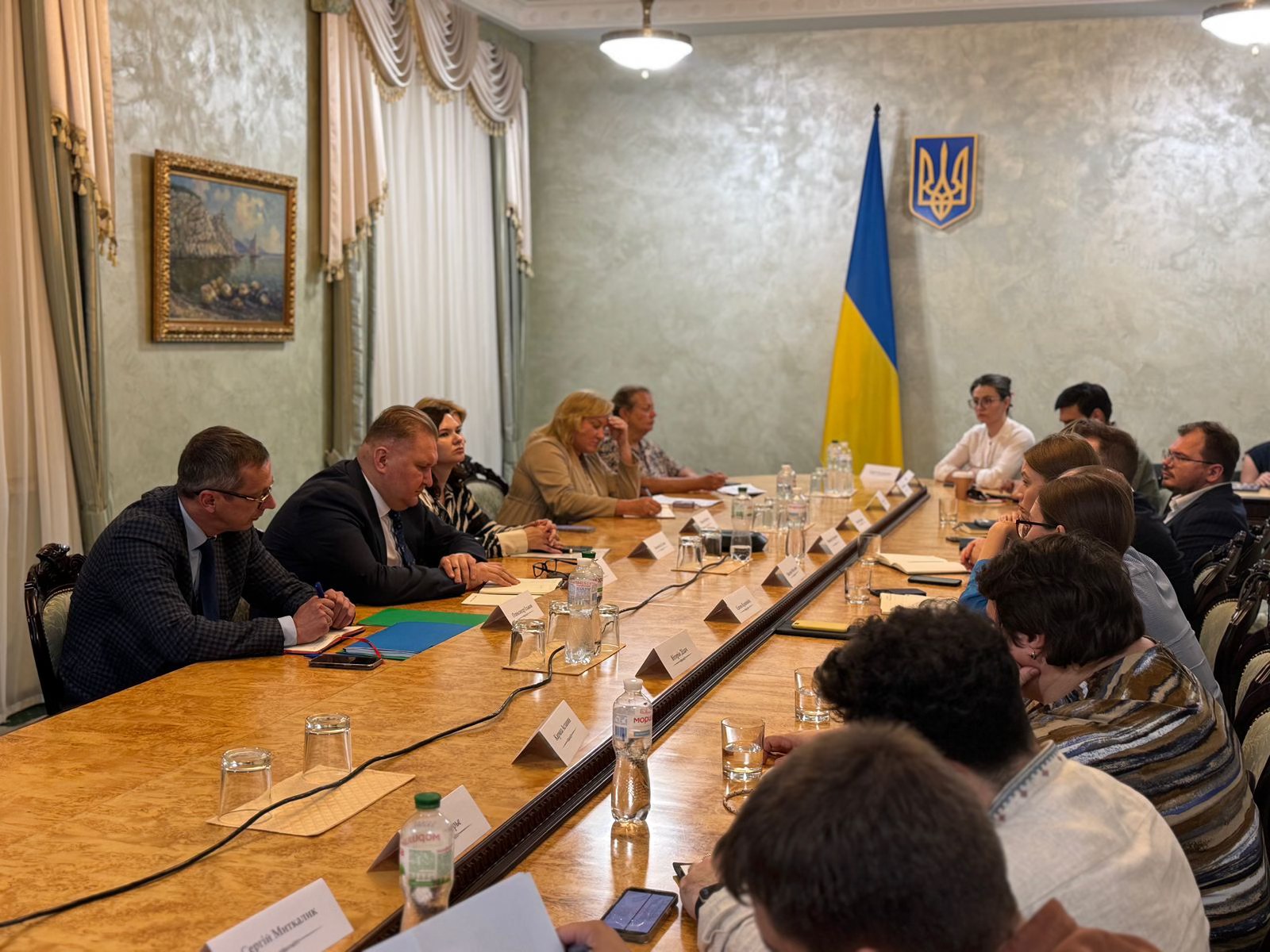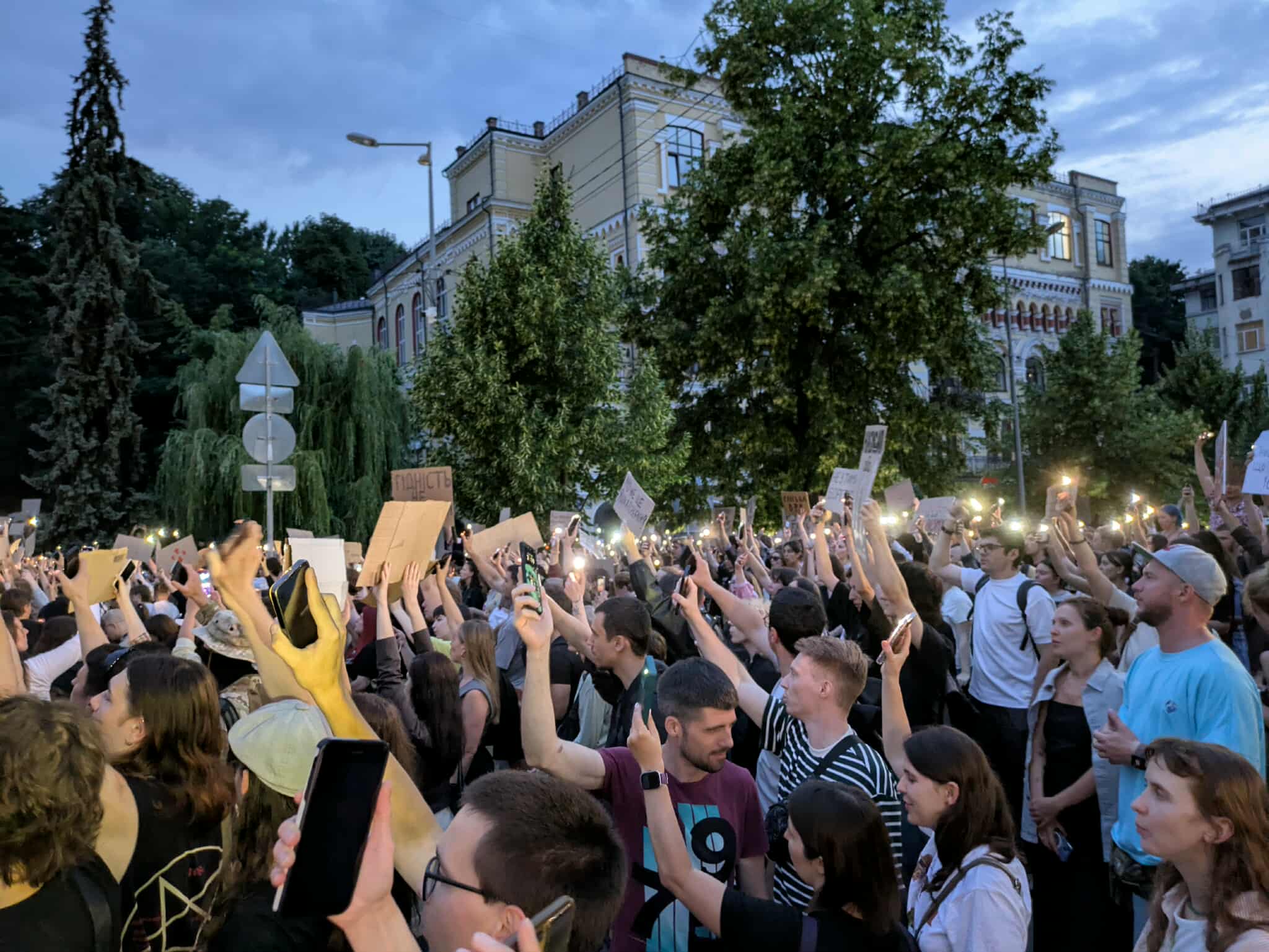Civil society at meeting with government: law undermining independence of NABU and SAPO threatens Ukraine’s European Integration
On 23 July 2025, Deputy Prime Minister for European and Euro-Atlantic Integration Taras Kachka met with representatives of civil society organisations dealing with the rule of law, to discuss the situation surrounding the National Anti-Corruption Bureau (NABU) and the Specialised Anti-Corruption Prosecutor’s Office (SAPO) following their weakening by a law passed the day before.
 The Deputy Prime Minister’s Office for European and Euro-Atlantic Integration
The Deputy Prime Minister’s Office for European and Euro-Atlantic IntegrationThe meeting was attended by Alena Lunova, Advocacy Director of the Human Rights Centre ZMINA, and representatives of the Centre for Democracy and Rule of Law, the DEJURE Foundation, the Centre of Policy and Legal Reform, the NGO Tomorrow’s Lawyer, the Ukrainian Legal Advisory Group, the Reanimation Package of Reforms (RPR) Coalition, the Agency for Legislative Initiatives, Transparency International Ukraine, the Anti-Corruption Headquarters, and EasyBusiness.
These organisations are part of working groups preparing Ukraine’s negotiating positions for Chapter 23, “The Rule of Law and Fundamental Rights and Freedoms”, as part of the European integration process.
Despite official rhetoric about the importance of joint efforts by the state and civil society to preserve the functionality of the anti-corruption system, human rights defenders have expressed a clear position that the law adopted by the Verkhovna Rada on 22 July, which limits the powers of NABU and SAPO, is a step backwards and must be repealed.
Commenting on the meeting, Alena Lunova noted that the adopted amendments concern not only the anti-corruption infrastructure, but also much broader issues: “These changes concern not only the elimination of the independence of the anti-corruption infrastructure, but also personnel issues, searches without a court order, and a critical expansion of the Prosecutor General’s powers. The law must be repealed immediately“.
She also emphasised that the adoption of the law had created a serious crisis of trust between civil society and the authorities: “Until yesterday evening, all of us, including ZMINA, were on the same side as the state on the issue of European integration. Now, not all organisations will be ready to work in partnership with the authorities, because it seems that we have different visions of what Ukraine should be“.
 The Deputy Prime Minister’s Office for European and Euro-Atlantic Integration
The Deputy Prime Minister’s Office for European and Euro-Atlantic Integration“There will be no integration and no trust between the authorities and citizens until we return to the point where we were. And that means restoring the independence of NABU and SAPO, stopping the persecution of activists and not even thinking about attacking the media. Otherwise, there will be no EU — there will be no state,” wrote Mykhailo Zhernakov, Chairman of the Board of the DEJURE Foundation, in a Facebook comment under a post by the Deputy Prime Minister’s Office for European and Euro-Atlantic Integration about a meeting with the civil society.
As is known, on 22 July 2025, the Verkhovna Rada of Ukraine passed Law No. 12414, which deprives NABU and SAPO of their independence. On the same day, late in the evening, President Volodymyr Zelenskyy signed it. At night, the document was made public and published in the Holos Ukrayiny newspaper, and came into force.
The law provoked sharp criticism from representatives of the European Parliament, the European Commission and Ukrainian civil society, who called the decision an attack on the independence of key anti-corruption institutions.
That same evening, a protest involving several thousand people took place near the Ivan Franko Theatre in Kyiv. At the same time, some MPs began collecting signatures for an appeal to the Constitutional Court to declare the law unconstitutional.
 ZMINA, Kyiv, 22 July 2025
ZMINA, Kyiv, 22 July 2025Today, on 23 July, the protests are taking place in Kyiv, Lviv, Odesa, Dnipro, Ternopil, Kharkiv, Ivano-Frankivsk, Chernivtsi, Sumy, Lutsk, Rivne, Vinnytsia, Mykolaiv and other cities. At the core of these protests are the same demands: ensuring the independence of NABU and SAPO. The protesters emphasise that this law is not just about anti-corruption infrastructure, but about the threat to democracy and the destruction of the gains achieved after the Revolution of Dignity.
ZMINA calls for the law to be repealed and for the independence of the anti-corruption infrastructure, which was established through a significant public fight.
If you have found a spelling error, please, notify us by selecting that text and pressing Ctrl+Enter.















